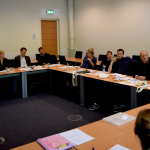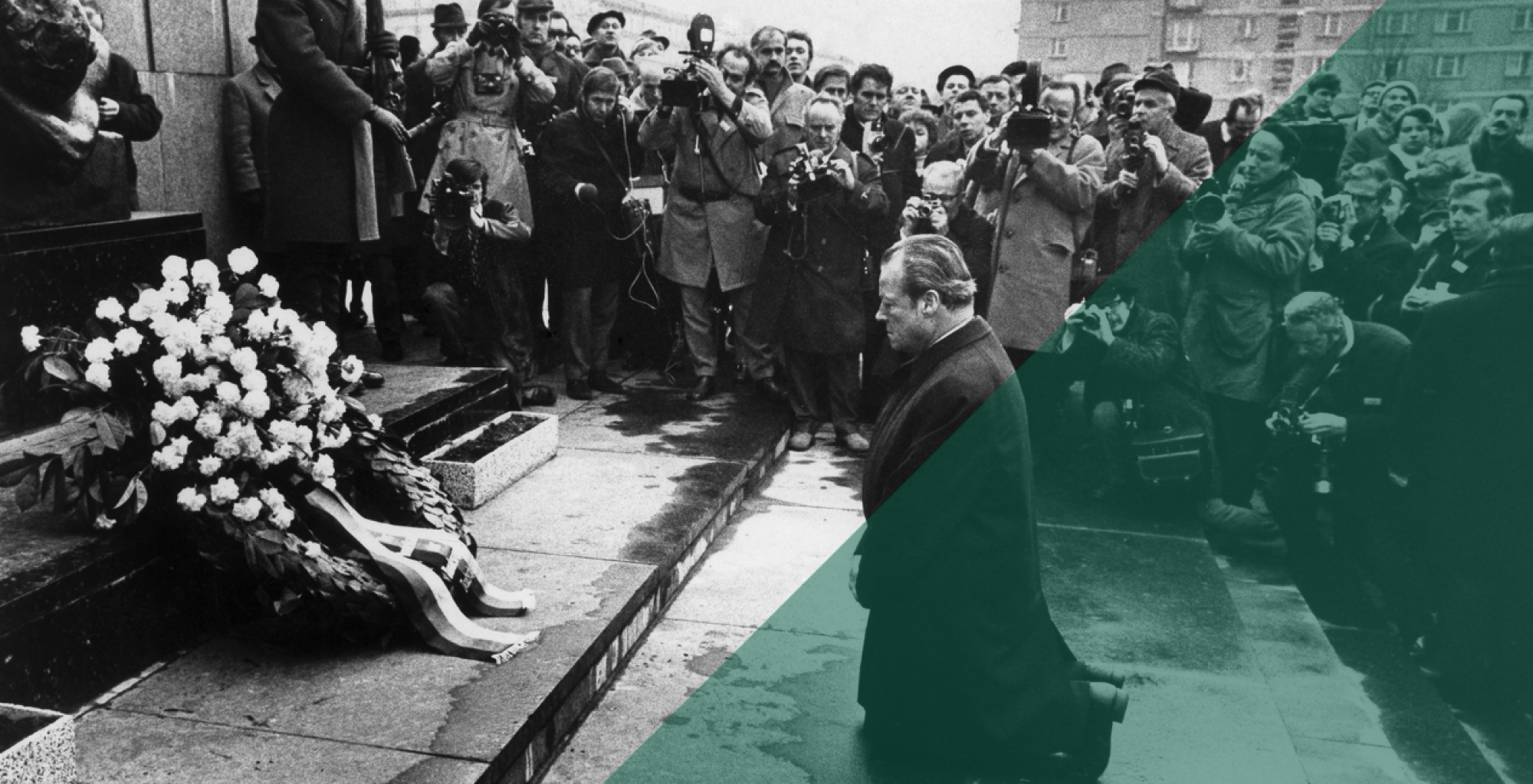The Expression and Reception of Political Apologies across Cultures
Over the past years, there has been considerable debate about the role of political apologies in reconciliation processes. Although some have heralded such gestures as a meaningful step, others have described them as political rituals that may be appropriate in some (cultural) contexts but not in others, as people may have different notions about what they mean, what purpose they serve, or how they should be expressed. What has been lacking, however, is a systematic analysis of how political apologies are expressed and received across the world. We aim to fill this gap by mapping and comparing the political apologies that have been made across the world, and by analyzing whether there are universals in how they are valued, expressed, and interpreted or whether this varies as a function of cross-cultural differences in key values and norms. For this, we relied on a broad range of methods, varying from content analyses and in-depth interviews to (experimental) surveys. Data have been collected using community samples (incl. people aged 18 and above from both urban and rural regions with mixed educational backgrounds) across 32 countries. More information about the different studies and the publications related to these studies, can be found via de links below. The Political Apologies Database is available on this website under the Database page.
Using extensive search procedures, we created the Political Apologies Database which contains political apologies that have been offered for human rights violations by states or state representatives across the world. We coded the apologies on a number of key characteristics and we cross-nationally mapped and compared these apologies, and conducted text analyses. The Political Apologies Database will be made available on this website for public use in the near future.
Related outputs:
Zoodsma, M. & Schaafsma, J. (2021). Examining the ‘Age of Apology’: Insights from the Political Apologies Database. Journal of Peace Research,59(3), 436-448. DOI: https://doi.org/10.1177/00223433211024696. pdf
Zoodsma, M., Schaafsma, J., Sagherian-Dickey, T. & Friedrich, J. (2021). These are not just words. A cross-national comparative study of the content of political apologies. International Review of Social Psychology, 34(1), 1-13. DOI: http://doi.org/10.5334/irsp.503. pdf
Schaafsma, J., Zoodsma, M., & Sagherian-Dickey, T. (2021). Closing chapters of the past? Rhetorical strategies in political apologies for human rights violations across the world. Journal of Human Rights, 20(5), 582-597. DOI: https://doi.org/10.1080/14754835.2021.1977919. pdf
Zoodsma, M. & Schaafsma, J. (2021, October 12). Trends in political apologies across the world: Insights from the Political Apologies Database. Historical Dialogues, Justice and Memory Network Seminar Series, virtual.
Sagherian-Dickey, T. (2020, July 14). Reckoning with the past, looking to the future: Analysis of political apologetic discourse in a cross-national sample. [Paper Presentation]. Annual Scientific Meeting of the International Society of Political Psychology, virtual.
Schaafsma, J. (2019, December 13). Examining the ‘Age of Apology’: A Cross-National Analyses of Political Apologies since WWII. [Paper presentation]. 8th Annual Conference Historical Dialogues, Justice and Memory Network, New York, USA.
Sagherian-Dickey, T. (2019, December 13). Prevention activism discourse in political apologies across cultures. [Paper presentation]. 8th Annual Conference Historical Dialogues, Justice and Memory Network, New York, USA.
Zoodsma, M. (2018, August 23) Is it too late now to say sorry? A cross-national analysis of political apologies [Paper presentation]. European Consortium for Political Research (ECPR), Hamburg, Germany.
Zoodsma, M. (2018, May 11) Political Apologies [Paper presentation]. Workshop on Practices of Memorialization & the Process of Social Reconstruction after large-scale Human Rights Abuses and Violations, International Institute for the Sociology of Law, Onati, Spain.
Zoodsma, M. (2018, December 14). De kunst van het sorry zeggen. [Radio interview]. Dutch Radio 1, the Netherlands.
Zoodsma, M. & Schaafsma, J. (2017, October 9). Politieke excuses: Holle frases of oprechte verzoening? [Presentation & discussion]. De Avond van de Wetenschap en Maatschappij, formal dinner at the Ridderzaal, the Hague, the Netherlands.
Countries: El Salvador, Republic of Korea, the United Kingdom.
In this part of the project, we examine how people (victims as well as non-victims) evaluate apologies that have been offered by a head of state for past human rights violations. For this, we conducted research across three different settings: El Savador (focusing on the apology by president Funes for the El Mozote massacre), Republic of Korea (focusing on the apology by president Roh Moo-hyun for the massacres during the Jeju uprising), and the United Kingdom (focusing on the apology by Prime Minister Cameron for Bloody Sunday). In each of these countries, we conducted in-depth interviews with victims as well as non-victims of these human rights violations about the meaning, value, form, and impact of the apology that was offered (N= 127). We also conducted a survey (N = 1011), in which we asked victims as well as non-victims to evaluate the apology on these various dimensions.
Related outputs:
Sagherian-Dickey, T. M., Schaafsma, J., Zoodsma, M., Cho, H., Dinnick, I., Kim, J. Noor, M., Turner, R. N. & Yanez, M.S. (2022). Meaningless gestures or pathway to reconciliation? Comparing the perspectives on political apologies in victim and nonvictim communities in El Salvador, the Republic of Korea, and the United Kingdom. British Journal of Social Psychology, 1-17. https://doi.org/10.1111/bjso.12556 pdf
Zoodsma, M., Schaafsma, J., Sagherian-Dickey, T., Yanez, M. S., Kim, J., Cho, H., Dinnick, & Kim, J. (in press). “I needed him to tell the world”: People’s evaluation of political apologies for human rights violations in El Salvador, the Republic of Korea, and the United Kingdom. Cooperation and Conflict. pdf
Zoodsma, M., (2022, July 17) ‘I needed him to tell the world’: A cross-country analysis of people’s evaluation of political apologies for human rights violations. [Paper presentation]. International Society of Political Psychology Annual Conference, Athens, Greece.
Zoodsma, M., (2022, June 22) A comparative analysis of the evaluation of political apologies. [Paper presentation]. Historical Dialogues, Justice and Memory Network Conference, University of Amsterdam The Netherlands.
Zoodsma, M. & Sagherian-Dickey, T. (April 2022) Jeju 4.3 Part 2: Introduction to the Jeju Massacre Apology. [Podcast episode] The Jeju Podcast.
Zoodsma, M. (February 2022) Episode 19 – Political Apologies Across Cultures. [Podcast episode] NIOD Rewind.
Zoodsma, M., (2021, September 8) The evaluation and impact of political apologies: case studies from El Salvador, the United Kingdom and the Republic of Korea. [Paper presentation] Conflict Research Society Annual Conference, virtual.
Sagherian-Dickey, T., (2021, July 11-13). Victims’ and non-victims’ evaluation of political apologies: A cross-country analysis. [Paper presentation]. International Society of Political Psychology Annual Meeting, virtual.
Zoodsma, M. (2020). Erkenning als essentieel onderdeel van politieke excuses. [Essay]. Impact Magazine, 4, 25-28.
Zoodsma, M. & Schaafsma, J. (2020). Excuses op het wereldtoneel [Essay]. RektoVerso. Tijdschrift voor Cultuur & Kritiek, 88, 26-30.
Zoodsma, M. (2019, December 13). The value of political apologies for prevention activism: A preliminary case study analysis of three cultural contexts. [Paper presentation]. 8th Annual Conference Historical Dialogues, Justice and Memory Network, New York, USA.
Countries: Argentina, Australia, Canada, Chile, China, Colombia, Costa Rica, El Salvador, France, Germany, India, Indonesia, Ivory Coast, Japan, Jordan, Kazakhstan, Kenya, Morocco, Netherlands, New Zealand, Nigeria, Pakistan, the Philippines, Poland, Russia, Saudi Arabia, Serbia, South Korea, Spain, Uganda, UK, USA.
In this survey experiment (N>9,600), we aim to gain a better understanding of how people across the world evaluate different types of political apologies that contain different apology elements (e.g., acknowledgment of wrongdoing or acknowledgment of suffering). We analyze whether their evaluation depends on the perspective they take (victim or perpetrator) and we examine whether any cross-country variation in this regard can be linked to the cultural context, controlling for relevant factors at the country and individual level.
Related outputs:
Zoodsma, M., Schaafsma, J., & Sagherian-Dickey, T. (Manuscript in preparation). People’s understanding and evaluation of political apologies across the world: Toward a more culture specific or more culture general approach?
Zoodsma, M. (2021, July 11-13) Examining cross-national similarities and differences in people’s evaluation of political apologies. [Paper presentation]. International Society of Political Psychology Annual Meeting, virtual.









